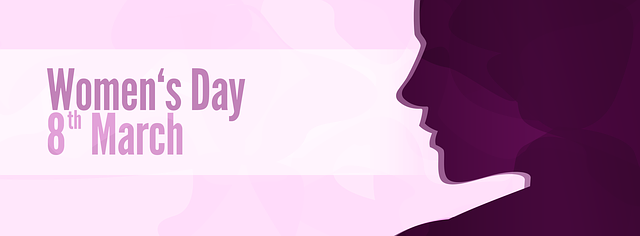Donor eggs offer hope to women with infertility, but they raise ethical dilemmas. Balancing joy of family creation with donor's autonomy and consent is crucial. Informed consent, open dialogue, and equitable access ensure a powerful yet responsible solution for fertility challenges while navigating complex legal and social landscapes.
Navigating the world of egg donation presents a complex web of ethical considerations, particularly for women facing infertility. This article delves into the multifaceted aspects of this process from a woman’s perspective, exploring the ethical dilemmas that arise in seeking donor eggs. We examine informed consent, autonomy, legal implications, and social dynamics, providing insights crucial for both donors and recipients navigating this sensitive journey towards building families.
Understanding Donor Eggs: A Woman's Perspective
For many women facing infertility, the concept of donor eggs represents a glimmer of hope. It’s a chance to experience pregnancy and motherhood when traditional methods may be unlikely to succeed. From the perspective of a woman considering donation, it’s about embracing a powerful act of generosity and compassion. Donor eggs offer a pathway for women with various medical conditions or age-related factors that might impact fertility to fulfil their dream of becoming mothers.
This process involves a complex interplay of emotions. It requires openness to receiving and using donated eggs, while also considering the ethical implications and the incredible gift given by the donor. Women opting for this route often navigate a landscape of emotional highs and lows, balancing the desire for a family with the awareness that another woman’s decision to donate has made their journey possible.
Ethical Dilemmas in Egg Donation Process
Navigating ethical dilemmas is an essential aspect of the egg donation process, especially considering the sensitive nature of donor eggs as a solution for women with infertility. One primary concern revolves around consent and autonomy. Egg donors must provide informed consent, understanding the implications and risks involved. This includes comprehending their role in assisting others to achieve pregnancy, potential psychological impacts, and the possibility of anonymous recipients. Balancing donor rights with recipient needs is crucial; ensuring donors feel respected and supported while also safeguarding the anonymity and privacy of both parties.
Additionally, equitable access to donor eggs is a complex issue. There’s a risk of creating a hierarchy among prospective parents, where financial resources become the primary factor in accessing this treatment. Ensuring fair practices, preventing exploitation, and promoting equal opportunities for all seeking donor eggs are challenges that require careful consideration. These ethical dilemmas demand open dialogue, robust regulations, and an ongoing evaluation of procedures to uphold integrity throughout the process.
Ensuring Informed Consent and Autonomy
In the realm of egg donation, ensuring informed consent and autonomy is paramount. Donor eggs play a crucial role in providing hope to women facing infertility, but the process demands meticulous care to protect both the donor and recipient’s rights. Autonomy means empowering donors with comprehensive knowledge about the procedure, its implications, and their own limits. This includes understanding the medical risks involved, the impact of donation on their body, and the potential emotional repercussions. Informed consent is not merely a checkbox; it’s an ongoing dialogue that allows donors to make decisions based on accurate information, ensuring they are fully aware of their choices and responsibilities.
By fostering open communication between donors, medical professionals, and recipients, autonomy is reinforced. Donor eggs for women with infertility represent more than just biological material; they carry the weight of personal stories and emotional connections. Protecting a donor’s autonomy means creating an environment where she feels safe to ask questions, express concerns, and ultimately decide if donation aligns with her values and well-being. This ethical approach not only safeguards donors but also strengthens the trust between all parties involved in this sensitive procedure.
Legal and Social Implications for Donors and Recipients
The legal and social landscape surrounding egg donation for women with infertility is complex and multifaceted. In many jurisdictions, egg donation is regulated to protect both the donor and recipient while ensuring ethical practices. Donor eligibility criteria, including age limits and medical screening, are established to safeguard the safety and well-being of all parties involved. Additionally, anonymity or non-anonymity of donors can be a point of contention, with varying preferences among recipients seeking to connect with their donor’s background, and donors who may wish to remain anonymous for privacy reasons.
Social implications extend beyond legal frameworks. The availability of donor eggs has revolutionized reproductive options for women facing infertility, offering hope and a chance at motherhood. However, it also raises questions about social equity and access, as the process can be expensive, limiting its accessibility to those with financial resources. Balancing these factors requires continuous dialogue and adaptation within both legal and social spheres to ensure that egg donation remains an ethical and equitable option for all involved.
Navigating the ethical landscape of egg donation is crucial for ensuring a supportive environment for both donors and recipients. By understanding the perspectives of women involved, addressing potential dilemmas, and upholding informed consent, we can foster a practice that respects autonomy. Legal frameworks and social implications must evolve to support the complexities of donor eggs for women with infertility, ensuring a safe, ethical, and equitable process for all parties involved. This approach promises to revolutionize access to reproductive resources while maintaining the dignity and rights of every individual.
